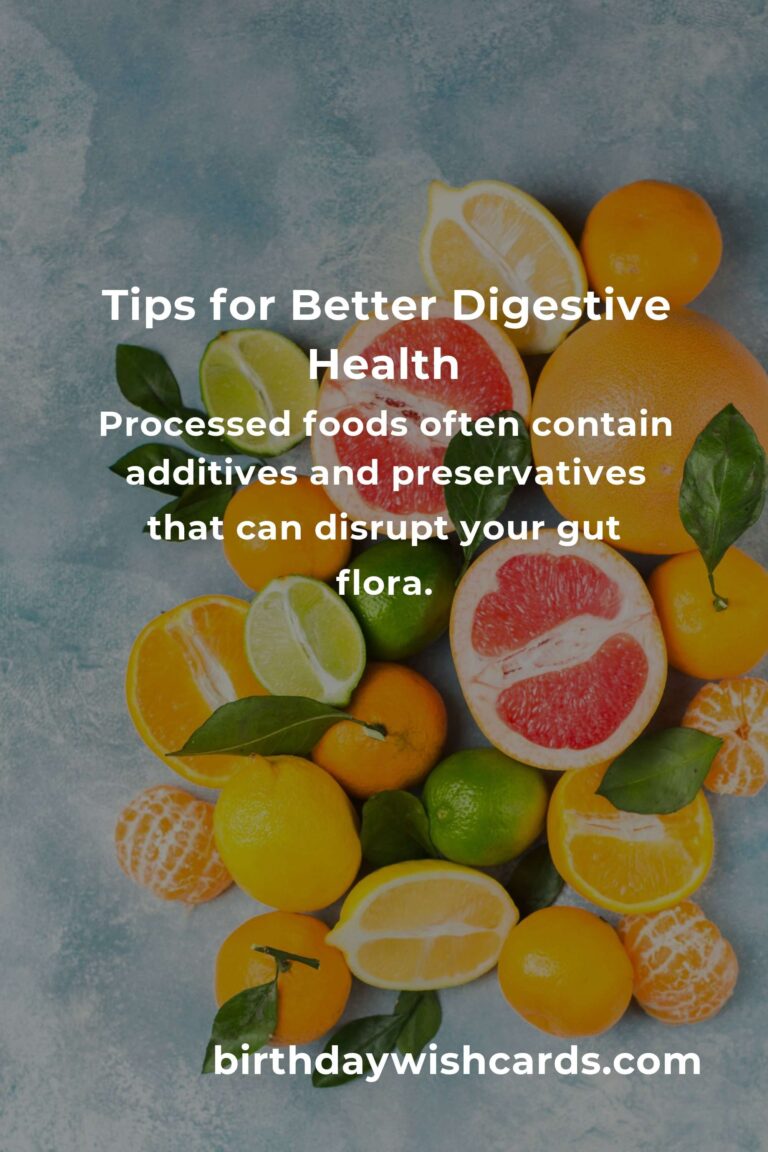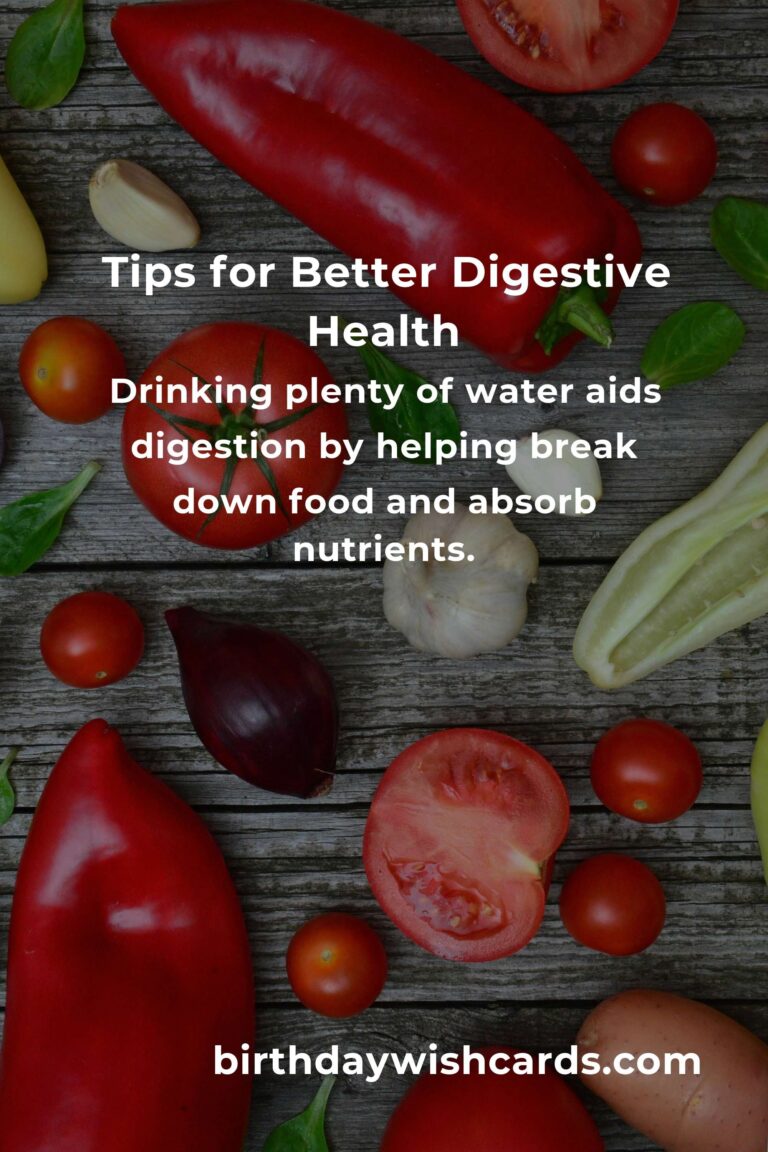
Your 20s are a transformative time for your body and lifestyle. Establishing healthy habits now can set the foundation for a lifetime of wellness, and digestive health is no exception. Here are 34 tips to help you maintain a healthy digestive system in your 20s.
1. Eat a Balanced Diet
A balanced diet rich in fiber, vitamins, and minerals is crucial for digestive health. Incorporate a variety of fruits, vegetables, whole grains, and lean proteins into your meals.
2. Stay Hydrated
Drinking plenty of water aids digestion by helping break down food and absorb nutrients. Aim for at least 8 cups a day.
3. Exercise Regularly
Regular physical activity promotes intestinal activity and helps maintain a healthy weight, both of which are essential for digestive health.
4. Manage Stress
Stress can negatively impact your digestive system. Practice stress-reducing activities such as meditation, yoga, or deep-breathing exercises.
5. Consume Probiotics
Probiotics are beneficial bacteria that support gut health. You can find them in fermented foods like yogurt, kefir, and sauerkraut, or take them as supplements.
6. Limit Processed Foods
Processed foods often contain additives and preservatives that can disrupt your gut flora. Opt for whole, unprocessed foods whenever possible.
7. Chew Your Food Thoroughly
Chewing food well helps break it down and signals your stomach to start the digestive process. This can improve nutrient absorption and prevent digestive discomfort.
8. Avoid Overeating
Overeating can overload your digestive system, leading to discomfort and bloating. Eat smaller, more frequent meals to give your stomach time to process food effectively.
9. Include Fiber in Your Diet
Fiber is essential for a healthy digestive system as it helps regulate bowel movements. Include both soluble and insoluble fiber in your diet from sources like oats, beans, and vegetables.
10. Reduce Alcohol Consumption
Excessive alcohol intake can irritate your digestive tract and disrupt the balance of gut bacteria. Drink in moderation to support digestive health.
11. Limit Caffeine Intake
While moderate caffeine can stimulate bowel movements, excessive consumption can lead to gastrointestinal issues. Monitor your intake to avoid potential problems.
12. Get Sufficient Sleep
Adequate sleep is vital for overall health, including digestion. Aim for 7-9 hours of quality sleep each night.
13. Avoid Smoking
Smoking can weaken the valve at the end of your esophagus, leading to acid reflux and other digestive issues. Quitting smoking can significantly improve your digestive health.
14. Eat at Regular Intervals
Eating at regular intervals helps regulate your digestive system and prevent overeating. Try to eat at the same times each day.
15. Listen to Your Body
Pay attention to your body’s signals. If you feel full, stop eating to avoid straining your digestive system.
16. Avoid Late-Night Snacking
Eating right before bed can lead to indigestion and discomfort. Try to finish your last meal at least two hours before bedtime.
17. Cook at Home More Often
Cooking at home allows you to control the ingredients and portion sizes, promoting better digestive health.
18. Practice Mindful Eating
Mindful eating involves paying attention to the taste, texture, and aroma of your food, which can enhance digestion and satisfaction.
19. Avoid Carbonated Beverages
Carbonated drinks can cause bloating and gas. Opt for still water or herbal teas instead.
20. Try Herbal Teas
Certain herbal teas, like ginger or peppermint, can aid digestion and soothe the digestive tract.
21. Limit Dairy Intake
If you’re lactose intolerant, consuming dairy can lead to digestive discomfort. Consider lactose-free alternatives if necessary.
22. Incorporate Healthy Fats
Healthy fats, found in foods like avocados and nuts, can aid digestion by allowing the absorption of fat-soluble vitamins.
23. Don’t Skip Meals
Skipping meals can lead to overeating later, which can stress your digestive system. Aim to eat regular, balanced meals.
24. Watch Your Salt Intake
High salt intake can cause water retention, leading to bloating. Use herbs and spices to flavor your food instead.
25. Stay Active
Incorporate movement into your daily routine, even if it’s just a short walk, to keep your digestive system active.
26. Limit Artificial Sweeteners
Artificial sweeteners can cause digestive issues like bloating and gas. Use natural sweeteners in moderation instead.
27. Practice Good Hygiene
Wash your hands before meals to prevent ingesting harmful bacteria that can upset your digestive system.
28. Be Aware of Food Allergies
Identify and avoid foods that trigger allergic reactions or sensitivities to prevent digestive discomfort.
29. Consider Digestive Enzymes
Digestive enzymes can help break down food and improve nutrient absorption, especially if you have digestive issues.
30. Limit Fried Foods
Fried foods are high in unhealthy fats that can slow digestion and cause discomfort. Choose baked or steamed options instead.
31. Take Your Time Eating
Eating slowly allows your body to signal when it’s full, preventing overeating and aiding digestion.
32. Avoid Eating on the Go
Eating in a hurry can lead to swallowing air and indigestion. Sit down and enjoy your meals mindfully.
33. Monitor Your Gut Health
Be aware of changes in your digestive health. If you notice persistent issues, consult a healthcare professional.
34. Educate Yourself
Stay informed about digestive health by reading reputable sources and consulting with healthcare professionals.
Your 20s are a transformative time for your body and lifestyle.
Establishing healthy habits now can set the foundation for a lifetime of wellness.
Drinking plenty of water aids digestion by helping break down food and absorb nutrients.
Regular physical activity promotes intestinal activity and helps maintain a healthy weight.
Stress can negatively impact your digestive system.
Probiotics are beneficial bacteria that support gut health.
Processed foods often contain additives and preservatives that can disrupt your gut flora.
Fiber is essential for a healthy digestive system as it helps regulate bowel movements.
Excessive alcohol intake can irritate your digestive tract and disrupt the balance of gut bacteria.
Adequate sleep is vital for overall health, including digestion.
#DigestiveHealth #HealthyLiving #GutHealth #WellnessTips #Nutrition













